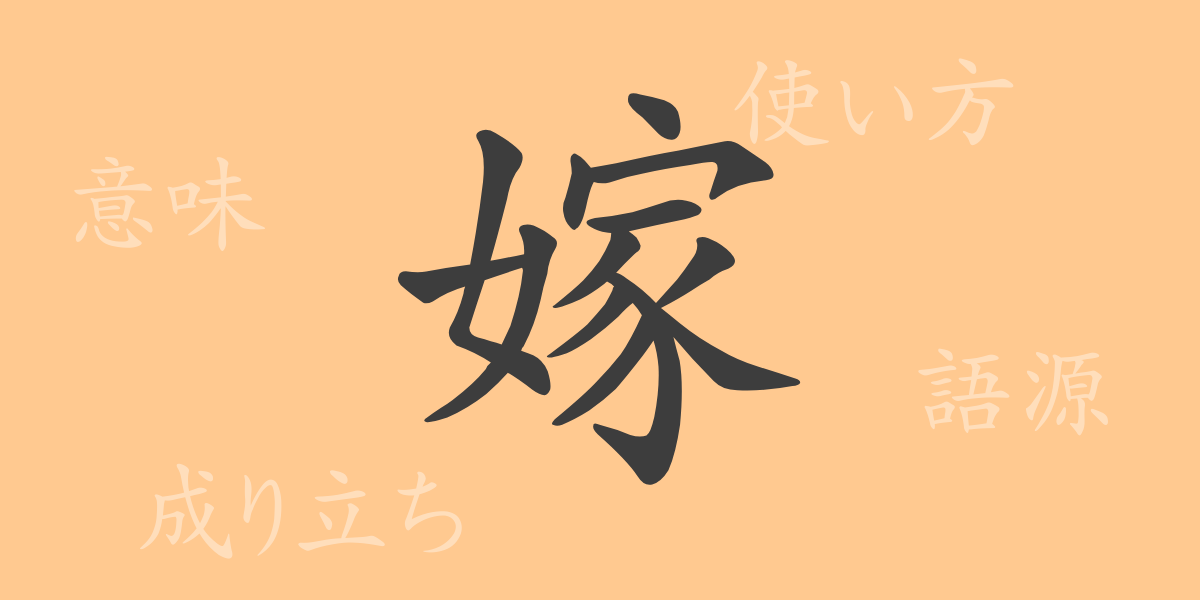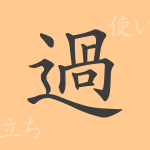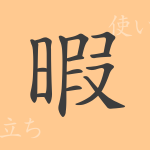Deeply rooted in Japanese culture is the character for “bride” (嫁)(Yome). At first glance, it may seem like just another common kanji, but the meaning and history behind this single character profoundly reflect the Japanese societal views on family and marriage. In this article, we will focus on the character for “bride” (嫁)(よめ), delving into its etymology, contemporary usage, and the idioms and phrases woven by this kanji, exploring a wide range of topics.
Origins of the Character for Bride (嫁)(Yome)
The character for “bride” (嫁)(Yome) is a kanji that has been used in China since ancient times. It is composed of the radical for “woman” (女)(Onna) on the left, combined with a simplified form of the character for “house” (家)(Ie), which is “豕”(Si). This symbolizes the act of a woman moving to another family through marriage, representing the change in a woman’s status due to matrimony.
Meaning and Usage of Bride (嫁)(Yome)
In modern Japanese, “bride” (嫁)(Yome) is primarily used to refer to a woman who marries and enters her husband’s family. Related to this, there is the verb “to marry off” (嫁ぐ)(Totu-gu), which can be used in the expression “to go off to marry” (嫁に行く)(Yome-ni-ik-u). Additionally, there is the term “marriage” (嫁入り)(Yomeiri), meaning a woman’s marriage into her husband’s family.
Reading, Number of Strokes, and Radical of Bride (嫁)(Yome)
The kanji “bride” (嫁)(Yome) has several characteristics.
- Reading: The on’yomi (Chinese reading) is “ka,” but the more commonly used kun’yomi (Japanese reading) is “yome.”
- Number of Strokes: “Bride” (嫁)(Yome) is a 13-stroke kanji.
- Radical: The radical of this kanji is “woman” (女)(Onna).
Idioms, Phrases, and Proverbs Using Bride (嫁)(Yome) and Their Meanings
There are various idioms, phrases, and proverbs that include “bride” (嫁)(Yome), such as:
- Bridal dowry (嫁入り道具)(Yomedougu) – Household goods and tools a woman brings to establish a new home when she gets married.
- Shortage of brides (嫁不足)(Yomebusoku) – A situation where there is a scarcity of women of marriageable age.
- Mother-in-law and daughter-in-law problems (嫁姑問題)(Yomesyuutomemondai) – Friction within the family between the bride and her husband’s mother.
Summary on the Character Bride (嫁)(Yome)
The kanji “bride” (嫁)(Yome) transcends being a mere character, acting as a mirror reflecting the structure of Japanese families, cultural norms, and societal changes. As a word symbolizing a significant milestone in life—marriage—it continues to be spoken by many people to this day. By examining the character for “bride” (嫁)(Yome), we gain the opportunity to ponder the deep meanings behind the word and the cultural context that surrounds it.

























